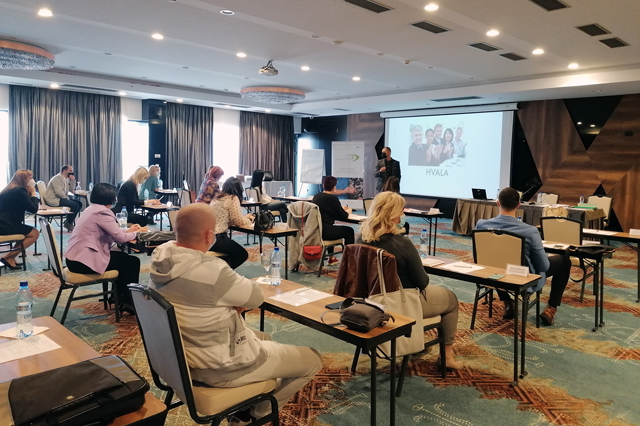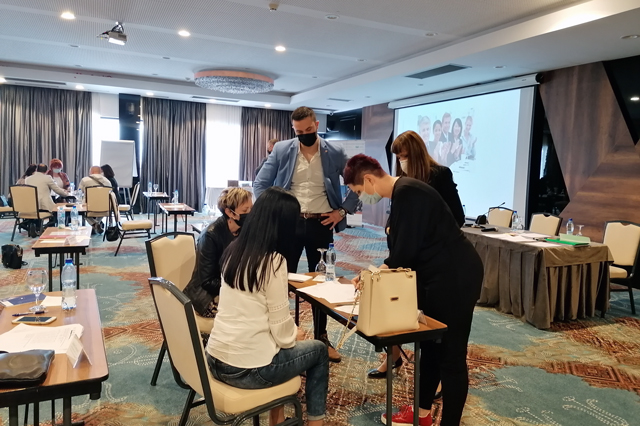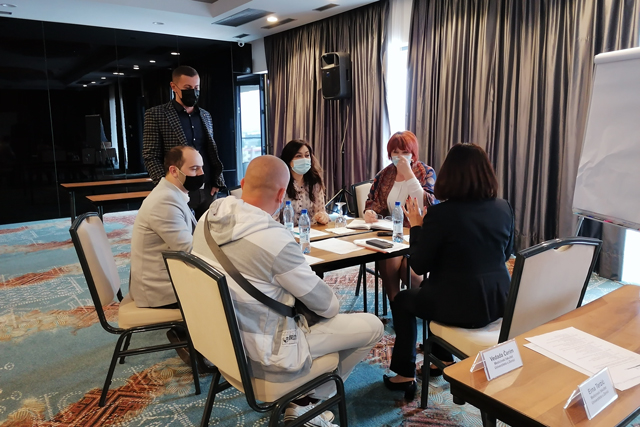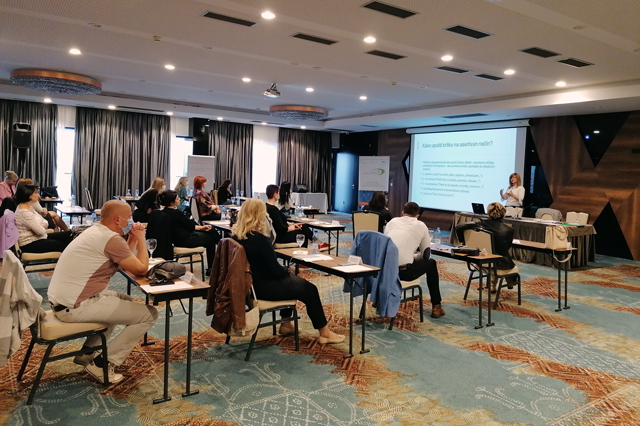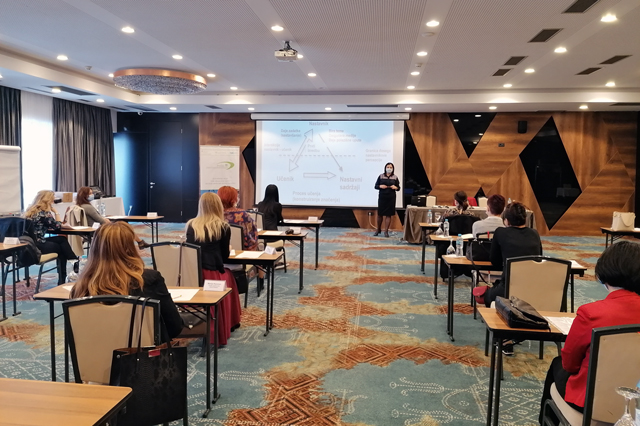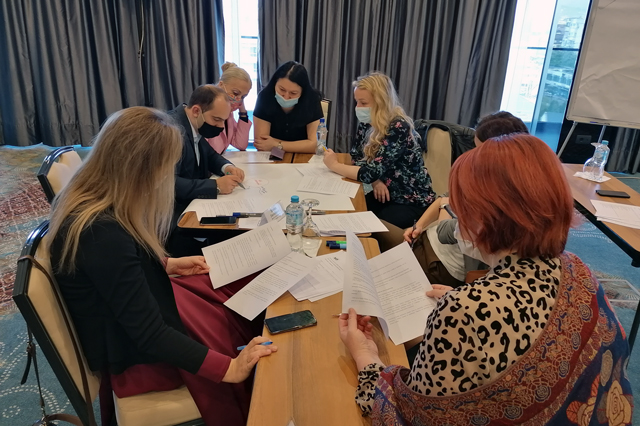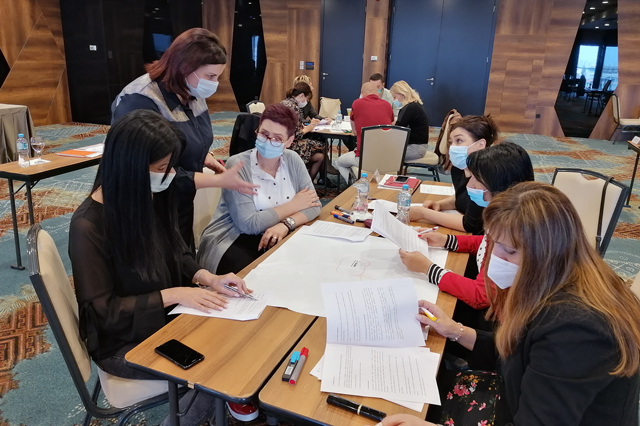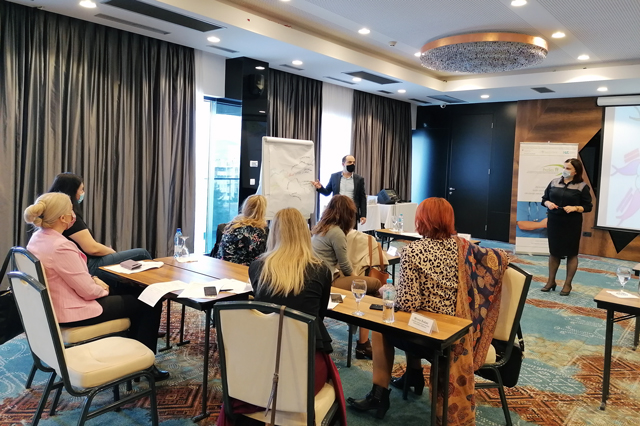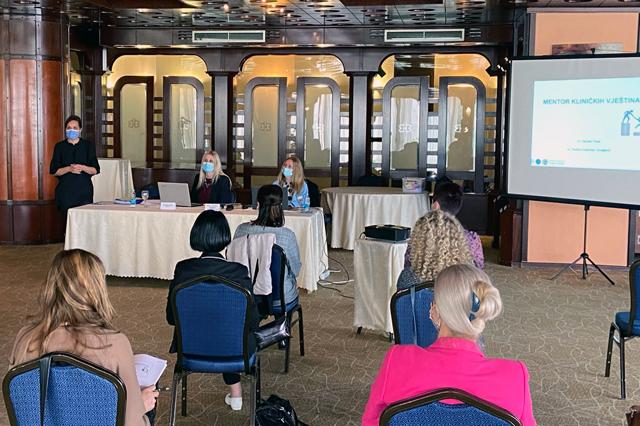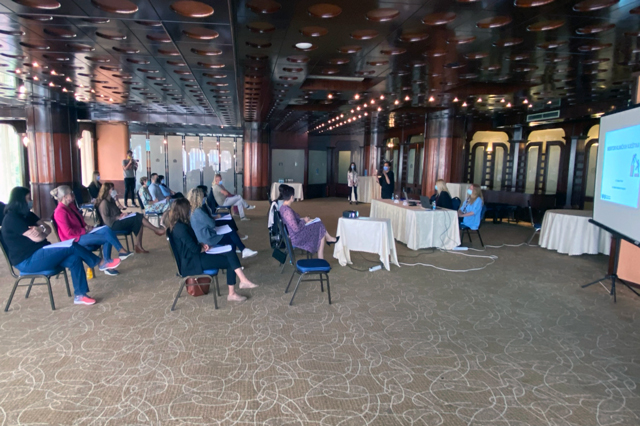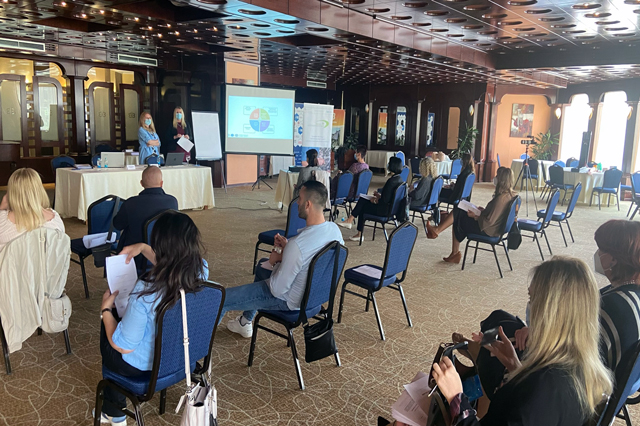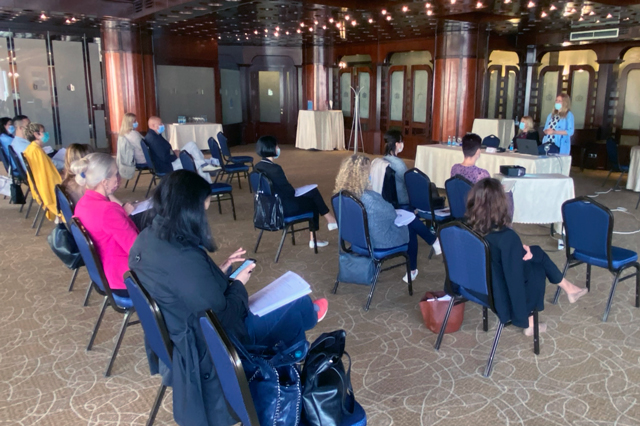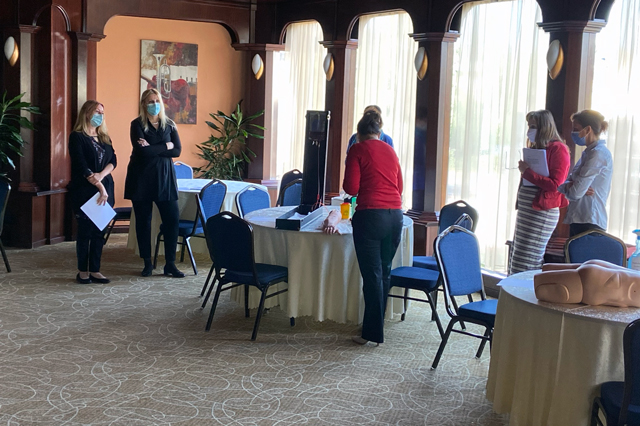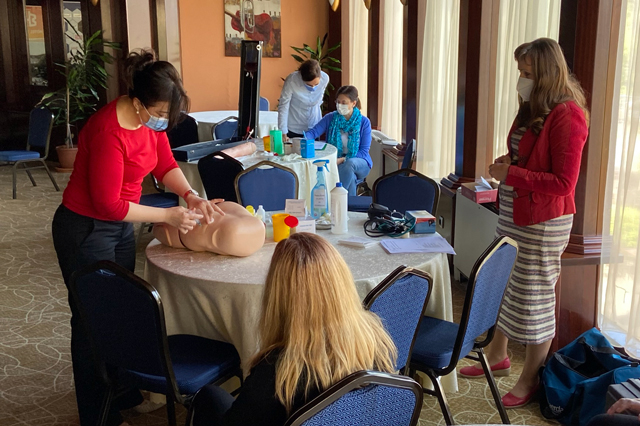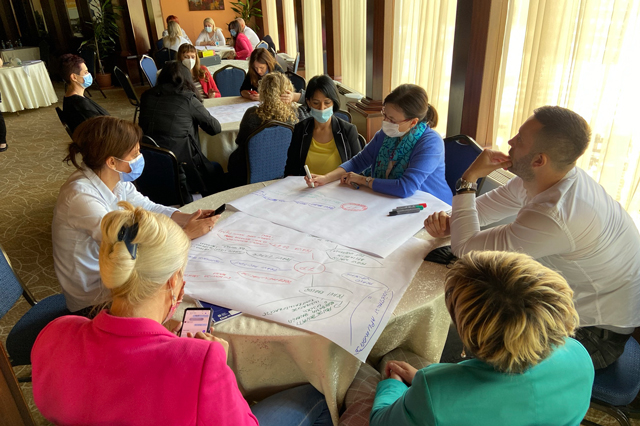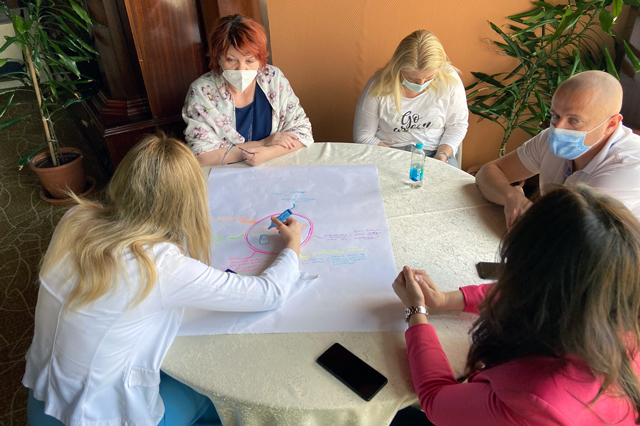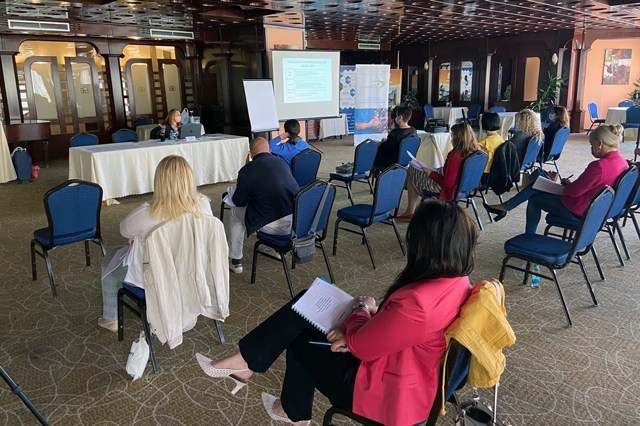Article in BMC Nursing on use of active learning methods in undergraduate nursing students’ programs.
Modern and active learning methods form an important part in the education of nursing students. They encourage the development of communication and critical thinking skills, and ensure the safe health care of patients.
In order to use such methods in their work, those transferring knowledge to students must be well acquainted with the learning
process and communication in adult education. To that effect, the Strengthening Nursing in BIH Project organized several cycles of training of nurses working as clinical skill mentors/nurse educator.
Upon the completion of the training, via group interview data was obtained from the nurse educators on the use and effects of active learning methods. The results of this research, whose authors are Sanela Pivac, Brigita Skela-Savic, Duska Jovic, Mediha Avdic and Sedina Kalender-Smajlovic, were published in an international nursing journal BMC Nursing.
The participants believed that various active methods, such as Peyton’s Four-Step Approach, Mind Mapping and Debriefing methods, have a multiple positive effect. They contribute to the development of nursing students’ communication skills, motivation and self-confidence; more effective learning and more confident performance of nursing interventions in a clinical setting with a patient; and finally provision of a safe environment either for the patient or for the student.
Based on the conducted research, the authors propose an implementation of active teaching methods in the educational process of nursing students, as well as regular monitoring of learning objectives, evaluation, updating teaching methods and the transition from traditional forms of learning to innovative forms.
In total, 35 mentors have completed the ProSes training for clinical mentors, i.e. 18% of all nurses engaged as mentors. All the video and e-material used in training will be delivered to the faculties and thus become available to other clinical skills mentors, facilitating those who had the opportunity to complete the training to transfer knowledge to their fellow mentors.
